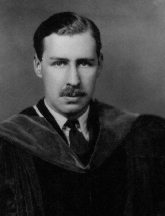Philosophy in Tengaria

Philosophy in Tengaria refers to the contributions to and study of philosophy in the modern geographic territory of Tengaria. Philosophy has played an important role in the development and formation of Tengarian culture and political society, and is considered an important keystone of its culture.
History
Pre-Arciluco
Tengarian legend holds that the great philosopher Xenagoras came to Istros and founded a school of Philosophy in the late third century BC. Most historians now agree that this claim is spurious, and that it was one of Xenagoras' disciples, Xenagenes, who founded a school in the city, who among his many other works, is also responsible for writing several works later mistakenly attributed to Xenagoras himself, namely, the Mechanics and On Indivisible Lines. Regardless, Teleological philosophy dominated the learning of the independent city state of Istros for the next few centuries through the Agora, the school which Xenagenes had founded, even after the school of thought was largely forgotten in the Solarian Empire and Piraea itself. The city was not isolated, however, and continued to recieve philosophical works from the Piraean cities and the Solarian Empire throughout the following centuries. During this time the citizens of Istros first came to follow the classical mode of the Liberal arts education which was developed in the Solarian Empire and Piraea.
Empire of Arciluco

After the Empire of Arciluco came to dominate the region, the dominance of Teleology started to fade as the city of Istros became a part of the the greater Empire. Since Sophism and Stoicism had become the prominent philosophic systems in Arciluco, they quickly became the dominant stands of philosophy in Istros. They also became the dominant philosophic systems in the education of the Tengar tribes, which were etsablished by Arcilucans and modeled on Ariculucan education. Since the Empire was Sotirian and converted the formely pagan Tengars, the rise of education through most of Tengaria coincides with the rise of Sotirianity. This brought Sotirian theology into the forefront of the philosophical discourses of the time, a position it would remain thereafter in Tengarian philosophy. Most theologians and philosophers, as was common throughout the Empire, took a Sophist stance. For the next few centuries, Tengaria's philosophic and theological scene would be largely considered as a part of the Empire of Arciluco. However, following Xenagoras's rise of influence in Eastern Euclea, his philosphy once more began to gain traction and support. However, there was still a great deal of dialogue between the two, especially with the Sophist-leaning theologians of the Empire.
As the Empire of Arciluco began to decline and fall apart, the scholars of the Vicariate continued to develop its own intellectual sphere, and were very during the Empire's final days. During the Iconoclast Controversy in the last days of the Empire of Arciluco, most of the Tengarian theologians and philosophers came down on the side of the Iconophile side, in no small part due to the Teleological view giving more importance to the body than the dualism found in Sophism. Leading this faction was the Patriarch of Istros, Saint Renat the Confessor, would play an integral role in the defense of icons against the rising Iconoclast movement. However, the Empire soon collapsed into the Realm of Thorns, which led to the proclamation of Empire of Tengaria and the Council of Lenovo, which saw the proponents of Iconodulism and Iconoclasm combat in theological debate. Although the Council failed to reconcile the two factions, nevertheless it firmly established Tengaria as the leading intellectual power of the time in the eyes of most of the Episemialist Church.
Tengarian Golden Age

The rise of the Empire of Tengaria corresponded with the beginning so called Tengarian Golden Age, which lasted from 1385 until 1550. Although this Golden Age corresponded with the flourishing of all forms of cultural output, the intellectual development of Tengaria was also greatly augmented. This is primarily because the collapse of the Empire Arciluco had resulted in the importance of Arciluco having diminished, especially since it was considered to have fallen into heterodoxy. Lenovo took its place, becoming the Imperial capital and soon the centre of learning. Since Tengaria had already largely embraced Teleological philosophy at this time, it allowed for famous Scholastic writings and learning of East Euclea to spread to Western Euclea. This new outpouring of intellectual discussion and writing was encouraged and supported by both state and church. Emperor Vasil established the University of Lenovo as the first West Euclean University in 1392, which provided a natural nexus for the new intellectual centre, and it soon became the main centre of learning in Western Euclea for the next few centuries. Saint Renat the Confessor also was a leading figure in the intellectual discourse, and famously defended the writings of Xenagoras in his tract On the Unity of Wisdom, which wove together many aspects of Xenagoran Philosophy with Sotrian Theology. In addition, with Tengaria taking the role as defender of Orthodox Episemialist Sotirianity, which was solidified by the Council and by Renat' work on the In Defense of the Images of God, which defended the usage of Icons, Tengaria was also able to take a prominent role in Episemialist Theology. Intellectual discussion and writing would greatly increase during this time. The old Agora school, which had fallen into decay, was revitalized. Old manuscripts of ancient works were reproduced and disseminated, some of them even then going to Eastern Euclea. This period of great intensity lasted throughout the first part of the 15th century, but settled to a more moderate pace afterwards. Still, for the centuries following, Tengaria continued to maintain its status as the intellectual leader of Western Euclea.
Later Imperial Period

As Tengaria began to become politically overshadowed by the powerful Soravia and a rebuilding Unio Trium Nationum, the quality and quantity of Tengaria's intellectual output began to diminish as more and more scholars gravitated towards new schools in Soravia. This increasing influence began to bring the Tengarian intellectual Golden Age to its end. Tengaria largely retained the scholarly discourse and schools of learning it had established during its Golden Age, but quickly began to fall behind as scientific advancement and new ideas of philosophy began to take root in other countries. Despite its intellectual renown, Tengaria's scholars were largely considered conservative Teleologists, which rendered many hostile to the advances of the scientific revolution. Despite of this, Tengaria's institutions continued to remain some degree of presitge, and scholars such as the Soravian Lawrence Lugin were known to come to Tengaria to access critical texts or engage in active philosophic discussions. Many Tengarian scholars, seeking to go beyond the set structures which were in place, flocked to Soravia or to Eastern Euclea to engage in the new paths of intellectual discourse which were occuring there. Eventually, Tengaria had lost its intellectual hegemony over Western Euclea corresponding to its political decline. The Agora school was largely abandoned, and the University of Lenovo fell greatly in prestige.
At the turn of the twentieth century, a resurgence in Teleological thought began to come again with the Znaniya school, which was a group of various scholars and artists of a wide variety of branches and studies. The school was known for supporting the revitalisation of Teleological philosophy in the light of advances in modern sciences, defending the teachings of Episemialist Sotirianity, reforming the educational system to return to the system on the classics which had been used during the Golden Age, and promoting a love for the common good and of the nation. At the head of this movement was Ivan Istina, a philosopher, scientist and overall Polymath who attempted to united Xenagoras' thought with contemporary knowledge, as well as an extensive writings enoromous range of other topics, from metaphysics to geometry to politics to music. Based on his broad range of knowledge, one of his most prominent ideas was that of universal studies, which holds that specialization is dangerous for the intellectual community, and that education must be holistic and carefully ordered so as to arrive at true knowledge. Another prominent thinker in the movement was Archbishop Alexandre Amilani, who was a prominent theologian who published several important works the nature of grace and divine providence from Episemialist tradition, as well as other many popular tracts. The school attracted many other Tengarians and young scholars, including Simeon Kovachev.
Post-Imperial era
When Simeon Kovachev reformed the constitution, he instituted his educational reforms, done in the model of the Znaniya school and rapidly rebuilding and expanding the educational system. With the implementation of the model, the ideas of the Znanya school- revitalized Teleology, Epismialist Theology, and emphasis on the classics and developing citizens of virtue, changed the philosophical scene in Tengaria. This was largely in part because this philosophical mandate was supported and practically enforced by Kovachev's government. Because it was enforced by the government in the educational model, it also was spread to Tengarians of all ages, and quickly became the dominant philosophy in Tengaria. Nevertheless, other philosophical schools exist to varying degrees throughout the country, ranging anywhere from revitalized Neo-Sophism to post-modern philosophies.
Current Status

Currently, Tengaria is considered a leader in the field of classical studies, historical philosophy, and Episemialist theology. The government continues to stress the importance of philosophy, and due to its education and focus on the intellectual life, philosophy is considered a key part of Tengarian culture. This fact is generally recognized internationally, with a qualification that this philosophy is considered at best antiquated or worse as repressive by most of the scholarly community. Nevertheless Tengarian scholars are recognized by many for the breadth of knowledge and seriousness of study. Scholars such as Boris Idenev, a polymath published in many academic fields and contemporary pioneer of Istina's case of Universal Studies, is a well known and respected author on the international scale, and Tengarian philosophers have been consistently members of invited to prestigious international groups, such as Tiranis Phrontis. In addition, Tengaria is home to several influential international philosophical awards and organizations, such as the Aletheia Award, considered one of the greatest academic distinctions for Philosophic work, the International Philosophy Institute, a global group of philosophers and historians of philosophy, and the Xenagoras Society, the primary association of Teleological philosophers or those who specialize in the study of the works of Xenagoras.
